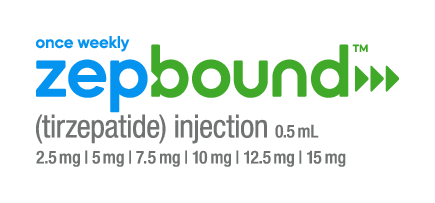


Semaglutide and tirzepatide are medications approved by the U.S. Food and Drug Administration (FDA) for the management of type 2 diabetes when combined with lifestyle changes such as diet and exercise. Wegovy® and Zepbound™ are brands of these medications that are used for weight management.
How it Works
Semaglutide is in a class of medications referred to as GLP-1 RAs (that stands for glucagon-like peptide-1 receptor agonists). These medications mimic the GLP-1 hormone, which is released in the gut after eating. The role of GLP-1 is to prompt the body to increase its production of insulin in order to reduce glucose, or blood sugar.
CONTACT US TODAY
In higher amounts, GLP-1 signals feelings of fullness and reduce appetite. When combined with diet and exercise, it can lead to a reduced risk of cancer, heart disease, and diabetes, and ultimately weight loss. While semaglutide is not prescribed as a weight loss medication, it may still help patients lose weight.
How is it Administered?
Semaglutide is self-administered as an injection once a week, on the same day every week at any time of day—with or without food. The dose typically starts low, and may be increased by the doctor as needed and based on how your body is responding to the medication. Slowly increasing the dosage can also help to manage side effects (the most common side effect when starting semaglutide is gastrointestinal issues).


The dosing pen comes pre-filled, and it is important to follow your healthcare provider’s instructions exactly.
Am I a Candidate?
If you qualify for the injections based on your health condition, we can prescribe it and put you into our carefully monitored program. It can be effective for patients with type 2 diabetes and a risk of heart disease or stroke.
Semaglutide is not recommended for patients with a history of gallbladder disease, pancreatitis, medullary thyroid cancer, or multiple endocrine neoplasia syndrome type 2 (MEN2).

